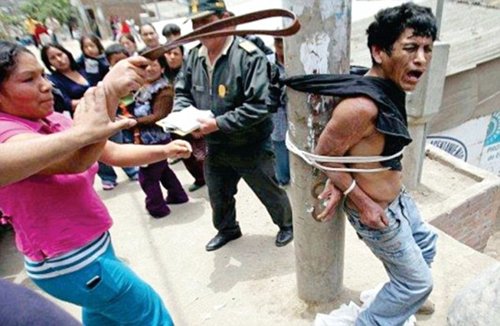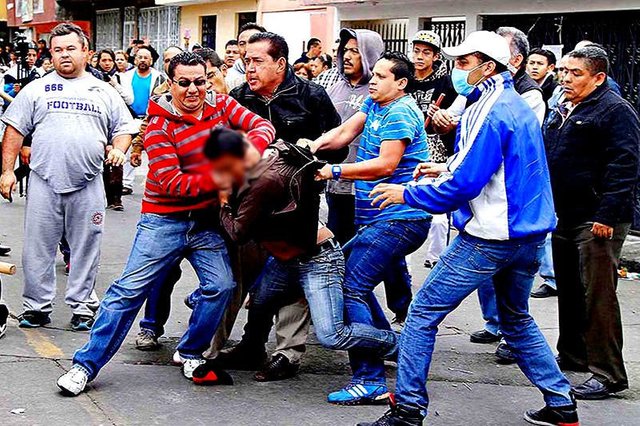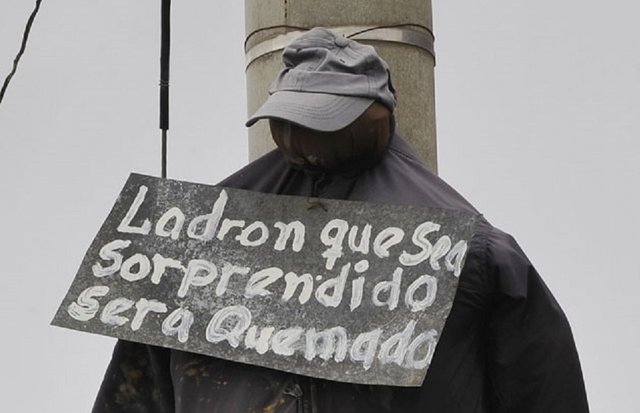Until 2015, in Venezuela, the convulsed South American country that is under the regime of Nicholas Maduro, the lynchings were a crime that rarely occurred, and when they happened, they occurred in the rural zones or more marginalized of the country, becoming this crime in A minor concern for the authorities.
But 2016 arrived and things changed radically. By April 26 people had been murdered by organized people who decided to take justice into their own hands.
Barely four months had passed and lynching had almost tripled compared to the previous year (2015) when only 10 lynchings were registered in Venezuela during the year.

The authorities explained that the dramatic rise in the incidence of this crime was due to the widespread anger of the population due to the increase of insecurity and the lack of policies on the part of the state to combat the problem that increasingly affects more Venezuelans.
The conditions in which Venezuela finds itself: high levels of homicide, poverty, insecurity, impunity, corruption and a widespread economic crisis have created the perfect conditions for citizens' security to cease to be seen as an inherent responsibility of the State and Become a citizen task that increasingly aggravates the social problems that the country is going through.

On average, the homicide rate is between 60 and 91 people per 100 thousand inhabitants. Very high figures that, according to Roberto Briceño León, director of the Observatory of Venezuelan Violence, have caused the population to resort increasingly to a "barbaric" and "retrograde" justice.
"All this is due to the growing impunity that is lived in the country and lynchings are the best resource that citizens have to face this phenomenon," says Freddy Crespo, a criminalist at the University of the Andes.
According to a recent survey published by Insight Crime, 66 percent of Venezuelan citizens approve lynching as an alternative method to bring criminals to justice and have them pay for their crimes.

"The lynchings are usually not conceived as crimes on the part of the citizens, since for them it is an act justified by the actions of the person to which they are lynching".
In addition, if we look at the numbers of impunity for homicides, we can see that 92 percent of homicides in general are not resolved, while 98 percent of deaths from lynchings go unpunished, prompting this Form of justice to see that there is no punishment when committing the fault, explains Javier Ignacio Mallorca, investigator of "Insight Crime".
Venezuela closed 2016 with a number of 65 homicides for lynchings, being the provinces of Monaga, Miranda, Zulia and Carabobo where more events of this type were registered.
Now, it is common to see signs in communities where they warn criminals of the consequences they will suffer in case of being caught committing an offense within the community.
Great post. It is sad, but good information.
Downvoting a post can decrease pending rewards and make it less visible. Common reasons:
Submit